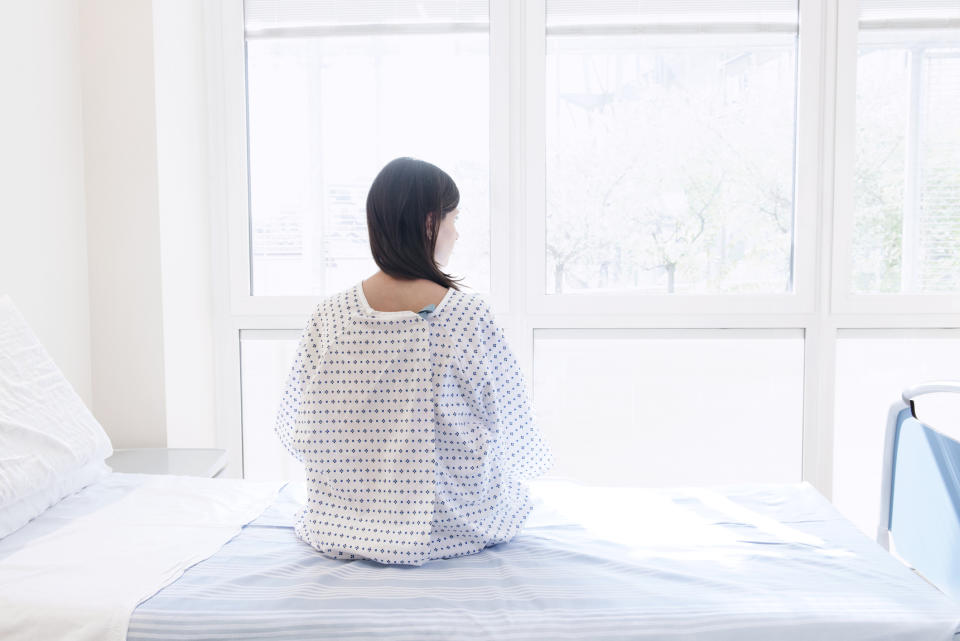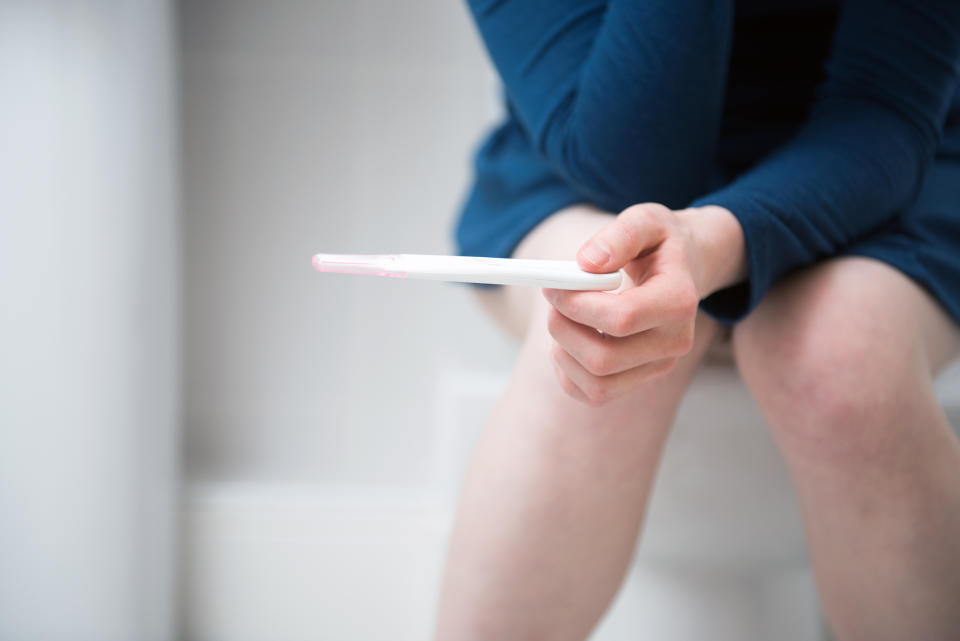Abortion in the UK: What you need to know
Watch: Woman jailed for taking abortion pills after legal limit during lockdown
There has been much discussion around abortion in the UK, which has been further ignited after a mother-of-three was jailed for illegally obtaining abortion tablets to end her pregnancy during lockdown.
Carla Foster, 44, was given a 28-month extended sentence after she admitted illegally procuring her own abortion when she was between 32 and 34 weeks pregnant.
Following the sentencing, abortion providers, campaigners and politicians fiercely criticised the decision to jail the mother as they called for abortion care in the UK to be immediately decriminalised.
The case has highlighted how important it is to know about how the process works in all areas of the UK.
In England, Scotland and Wales, you can legally have an abortion at up to 23 weeks and six days of pregnancy, in line with the Abortion Act 1967.
They can be carried out after 24 weeks in limited circumstances, for example, if the mother's life is at risk or the child would be born with a severe disability.

By law, those having an abortion are still required to explain their reasons for wanting one, and two doctors need to make sure the requirements of the Abortion Act are met.
The 1967 Act did not extend to Northern Ireland, and despite the decriminalisation of abortion in 2019 there, abortion services are still limited.
It is legal for women and girls from Northern Ireland to travel to England to access abortion services.
Read more: US abortion ruling: Lily Allen’s lyrics at Glastonbury sum up world’s devastation, Yahoo Life UK, 3-min read
How to have an abortion

Abortions can only be carried out in an NHS hospital or a licensed clinic, and are usually available free of charge on the NHS.
The three main ways to get an abortion on the NHS:
Self-referring by contacting an abortion provider directly: the British Pregnancy Advisory Service (BPAS), MSI Reproductive Choices UK, the National Unplanned Pregnancy Advisory Service (NUPAS) or your local NHS sexual health website can tell you about eligibility and services in your area.
Speaking to a GP and asking for a referral to an abortion service: the GP should refer you to another doctor if he or she has any objections to abortion.
Contacting a sexual health clinic and asking for a referral to an abortion service
You can also pay to have an abortion privately, with costs varying depending on the stage of the pregnancy and the type of procedure.
What are the different types of abortion?
There are two kinds of abortion: medical (also sometimes referred to as the abortion pill) and surgical.
Medical abortion – A medical abortion, or abortion pill is actually two pills. “The first pill (Mifepristone) blocks the hormone progesterone and without this the pregnancy cannot continue,” Dr Diana Gall, from Doctor-4-U previously told Yahoo UK. “A day or two later you will take the second pill (Misoprostol) which will cause a loss of pregnancy similar to a miscarriage along with cramps and bleeding.”
Surgical abortion – There are two types of surgical abortion. “Vacuum aspiration which can be completed up to 15 weeks pregnant involves dilating the cervix and using a tube to remove the pregnancy from the womb via suction while the woman is on pain relief or sedated,” Dr Gall said.
The second surgical method, dilation and evacuation, is used between weeks 15 and 24 of a pregnancy. “A woman is usually placed under general anaesthetic or sedation, and again the cervix is dilated,” Dr Gall explained. “Rather than a tube however, the pregnancy is removed with forceps.”
Read more: Outrage after woman jailed for illegally taking abortion pills, Yahoo UK, 6-min read
How will an abortion affect my body?
Each woman is different, and the effects could depend on whether you opt for a medical or surgical abortion.
“If the medical abortion is carried out early on in pregnancy then the bleeding expected is not too dissimilar to a heavy period,” Ash Alam, consultant gynaecologist at www.london-gynaecology.com previously explained. “However bleeding can continue for several days which may be distressing.”
After a medical abortion you may experience side effects such as nausea and diarrhoea.
“With either abortion types, you are likely to experience stomach cramps and bleeding for a couple of weeks, up to a month. Painkillers can help with any pain or discomfort, but normally the obstetrician should provide you with a short course of antibiotics on leaving to help with this and to help prevent any infections,” Dr Gall adds.
Read more: What are the abortion laws in the UK?, Independent, 5-min read
Potential risks of abortion
According to the NHS, most women won't experience any problems, but there is a small risk of complications, such as:
infection of the womb (uterus)
some of the pregnancy remaining in the womb
excessive bleeding
damage to the womb or entrance of the womb (cervix)
Having an abortion won't affect your chances of becoming pregnant again and having normal pregnancies in the future.
After an abortion
If you’re worried about any of the side effects of an abortion or need emotional support, get in touch with your abortion provider.
You can request a non-urgent aftercare call from BPAS online, or for more information call them on 03457 30 40 30.
You can also contact Marie Stopes here.
For further information see the NHS page on abortion.


